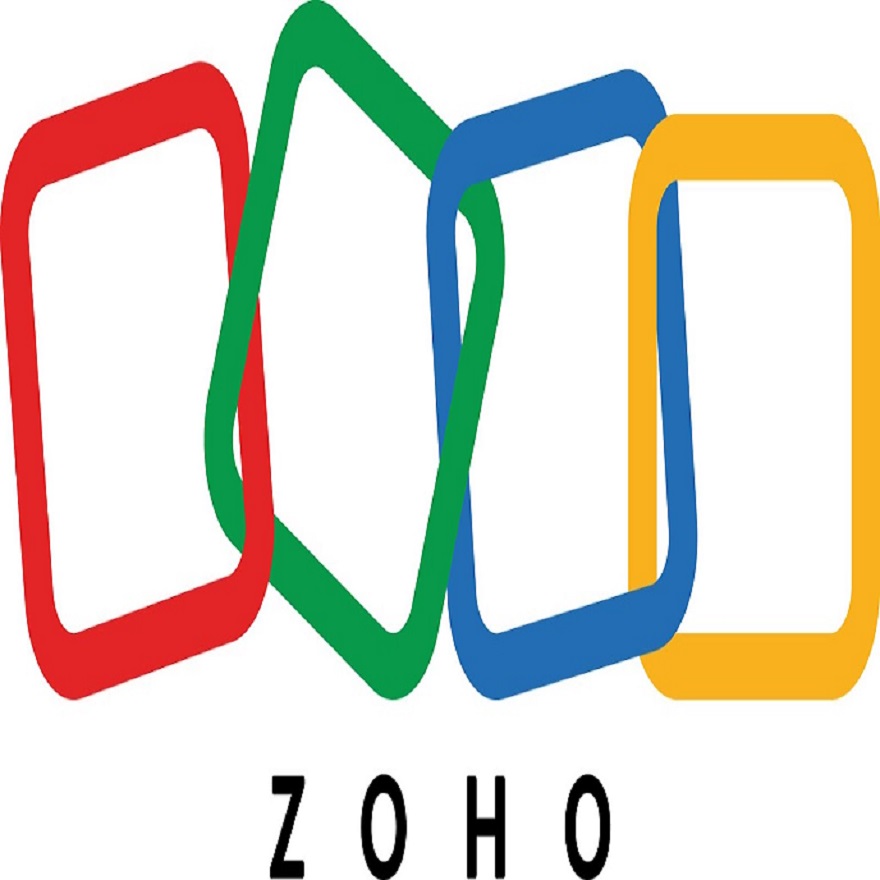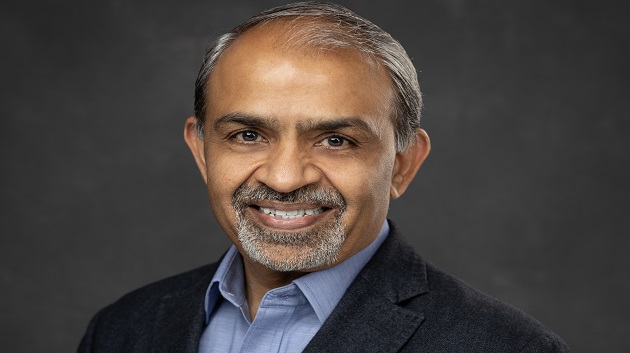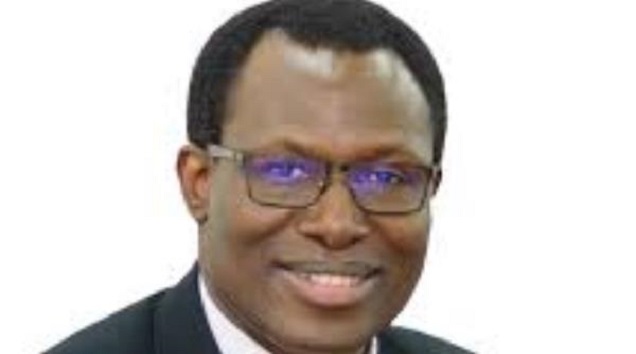Telecom
Zoho Corporation Expands AI Capabilities with New Zia Agents and Studio

Zoho Corporation, a global technology company, today expands the scope of Zia with the announcement of Zia Agents, Agent Studio, and Agent Marketplace. Together, these solutions empower enterprises to access, build, and distribute intelligent, autonomous digital agents across their organisations.

Beginning today, Zoho and ManageEngine will be previewing pre-built, task-specific Zia Agents, which will deploy across Zoho Corporation’s combined portfolio of 100+ products in the coming weeks.
“The speed of disruption and quality of innovation we’re seeing in our industry right now has encouraged me to focus on my passion area, technology. I will devote more time to hands-on technical work for the company, spearheading several deep R&D initiatives, beginning with AI,” said Sridhar Vembu, Zoho Corporation’s Co-founder and Chief Scientist. “Utilising Zoho’s deep engineering expertise, its own data centres, and shared data model, we will develop powerful and usable solutions that drive customer value while retaining our commitment to customer flexibility and data privacy.”
Zoho Corporation’s in-house AI has evolved over the past decade from proactive to prescriptive to generative to agentic:
Zia: Launched in 2015, Zia is Zoho Corporation’s foundational AI, facilitating all intelligent and contextual actions across the company’s ecosystem of apps. Zia possesses a vast and diverse skillset. New skills are being implemented regularly to boost customer experience and drive productivity.
Ask Zia: Launched in 2018, Ask Zia has developed into a system-wide conversational assistant that helps employees work smarter and accomplish tasks more effectively. For example, an account manager can review a report of customers at risk of churn, summarise the outcomes of each customer’s recent interactions, filter and summarise helpdesk tickets, analyse trends in their industry, and reach out to that customer for a meeting based on the employee’s upcoming travel schedule, without leaving the Ask Zia interface. Ask Zia is powered by Zoho’s unified data platform and will be contextually embedded across all applications.
Zia Agents: Today, Zoho Corporation has previewed some of the several dozens of pre-built Zia Agents that will be rolled out in the coming months, including an Account Manager Agent, SDR Agent, HR Agent, Customer Support Agent, IT Help Desk Agent, and a SalesCoach Agent. For customers, partners, and developers looking to create their own agents, Zoho is launching Zia Agent Studio, allowing them to build and deploy customised agents with inherited skillsets, which can then be distributed through Zoho’s Agent Marketplace.
Zia Agent Studio: Offering no-code and low-code experiences, Zia Agent Studio enables users to build autonomous agents with skills relevant to their specific needs. Zia Agent Studio users can also access a wide range of pre-existing Zia Skills, tools from across the Zoho ecosystem, data from a unified data platform, and a range of language models. These can be agents within a function (like an SDR agent or email support agent) or natively cross-functional agents (like an RFP agent or loan approval agent).
They can be deployed on any Zoho application and summoned using Ask Zia. Moving forward, Zia Agents will be deployable in any third-party application as well. Additionally, Zia Agents with complementary skillsets can be combined using Zia Agent Studio, creating a single agent capable of cross-functional work.
Agent Marketplace: Agents created using Zia Agent Studio can be published in the Agent Marketplace. Zoho Corporation will offer a pre-built roster of agents, while the company’s ecosystem of partners and developers can build and distribute specialised AI agents through the marketplace, which can be reused and instantly deployed by organisations.
Organisational Differentiation
Today’s announcement follows record growth for Zoho Corporation, which onboarded 110,000 new customers globally in 2024. With over 850,000 customers globally in diverse industries, using a range of tools across Zoho and ManageEngine, Zoho Corporation’s AI solutions are informed by a vast range of functional data. This is a core differentiator for the company, putting it in a unique position to serve businesses with cutting-edge technology.
Technological Differentiation
Zoho Corporation’s distinct technological breadth and depth is a fundamental differentiator, particularly in AI development and deployment. Leveraging its shared data model, owned and managed tech stack, including global data centres, and a broad application portfolio, Zoho Corporation’s highly secure, privacy-compliant, usable, capable, and deeply knowledgeable AI agents deliver superior technology at a high value to its growing customer base.
Availability
These capabilities will begin to roll out to a limited set of customers, which will expand monthly.
Telecom
WhatsApp to Start Showing more Adverts in Messaging App

WhatsApp is launching three new ad features in a global roll-out across the messaging app.

The Meta-owned platform said the new ads will not be shown in the same place as people’s private chats, nor will the contents of their messages – which are encrypted – be used to decide which ads to display.
WhatsApp will instead use the country, city and language of the user, as well as how they interact with other ads and which channels they follow, to drive suggested content.
But people who have chosen to link their WhatsApp account to Facebook or Instagram will see more personalised ads.
The new ad features will appear in a section called Updates, which is a separate tab at the bottom of the app.
WhatsApp claims to have 1.5 billion users globally.
Businesses with channels will be able to choose to promote ads in the Updates section to attract new followers, and also charge a subscription to access extra content.
WhatsApp will eventually take a 10% commission of that fee, and there may also be extra costs on top of that taken at the app store level depending on the size of the business.
Firms will also be able to advertise in the form of a status update, which looks similar to an Instagram story and will link through to start a chat if clicked on.
Social media expert Matt Navarra told reporter that Meta is “laying the foundation for WhatsApp to finally become a monetisable platform at scale”.
But “monetising the periphery” of WhatsApp, while keeping personal chats private, would not be without risk for the company, he added.
This could particularly be the case in markets like the UK and Europe, he said, where the app is viewed primarily as a messaging tool with less appetite for content feeds or adverts.
“Any perception that the app is becoming noisy or Facebook-ified will spark backlash,” he said.
How does WhatsApp make money?
‘Natural extension’
It’s no coincidence that the new features bring WhatsApp more in line with Meta’s other platforms Facebook and Instagram.
“Obviously there’s overlap,” said WhatsApp boss Will Cathcart.
“We have stories on Instagram and stories on WhatsApp, and we now have a way for businesses to promote themselves in both, and we think that’s a good thing.”
He said he believed the move was a “natural extension of messaging services” and not dissimilar to features of rival apps such as Snapchat and Telegram.
For Mr Navarra, it also reflects a wider shift in the social media landscape.
“The feed is dying, public sharing is down, people are retreating into DMs and Stories in small groups,” he said.
“Meta’s trying to turn WhatsApp into a platform without users realising it and if they move too fast or it starts to feel like another ad network, people might disengage or maybe worse, distrust the app.”
Telecom
Airtel Africa Reinforces Commitment to ESG Impact while Advancing Digital, Financial Inclusion Across 14 Markets

Airtel Africa, a provider of telecommunications and mobile money services across 14 African countries, has published its Sustainability Report 2025, reaffirming its corporate purpose of transforming lives by expanding access to essential digital services, supporting inclusive economic growth, and advancing environmental stewardship throughout its operations.

In 2024/25, Airtel Africa made significant progress in bridging the digital divide, advancing financial inclusion and supporting underserved communities through strategic investment in connectivity, people, and sustainable practices.
Airtel Africa’s chief executive officer Sunil Taldar said: “This year’s achievements, from connecting 2,176 schools through the UNICEF partnership to reaching 44.6 million Airtel Money customers with near-gender parity, prove that the power of technology is a catalyst for gender balance. At Airtel Africa, we believe to not only expanding networks but we’re also building bridges to education, financial security and sustainable growth for Africa’s next generation.”
Key ESG highlights:
- Providing underserved communities with access to reliable network and connectivity:
- 2% population coverage across 14 markets (up from 80.4% in 2023/24)
- 36,159 4G infrastructure sites, including more than 15,300 in rural areas.
- Continued investment of $670m in network expansion and modernisation to boost speed, coverage and capacity.
Airtel Africa is connecting the unconnected, giving millions access to voice, data and mobile money services – driving economic opportunity and enhancing access to essential services.
- Bridging the digital divide, driving financial inclusion and addressing gender inequality
- 4 million data customers (+14.1% vs 2023/24)
- 6 million Airtel Money customers (+17.3%), with 44.2% Airtel Money customers who are women (+6.2% vs 2023/24)
- 7 million Airtel Money agents in our distribution network (+23.4% vs 2023/24)
- 2% women in the workforce across the Group (up from 28.3% vs 2023/24)
Through inclusive digital services and affordable financial products, Airtel Africa is empowering individuals and communities, particularly women, to fully participate in the digital economy.
- Unlocking potential through education and employment opportunities
- 2,176 schools connected to the internet free of charge (up from 1,201 in 2023/24)
By providing free connectivity and online resources to schools, Airtel Africa is helping young people reach their full potential. A growing agent network also supports employment and entrepreneurship opportunities across its footprint.
- Minimising the impact of our operations on the environment
- 500 off-grid sites converted to on-grid power, reducing reliance on diesel generators.
- 93% of total waste recycled (+3% vs 2023/24)
Airtel Africa is committed to reducing the impact of its operations on the environment through investment in renewable energy solutions and responsible waste management.
The Sustainability Report 2025 adheres to the Global Reporting Initiative (GRI) and GSMA telecommunications industry standards.
Telecom
ALTON Clarifies on Migration to End-User Billing for USSD Services

The Association of Licensed Telecom Operators of Nigeria (ALTON) wishes to inform the public and all mobile subscribers that the migration to the End-User Billing (EUB) model for Unstructured Supplementary Service Data (USSD) services will take effect from Wednesday, 18th June 2025.

This transition marks a significant milestone in the evolution of Nigeria’s digital financial ecosystem and is being implemented per the Determination of USSD Pricing and Services issued by the Nigerian Communications Commission (NCC).
The Determination was developed in collaboration with the Central Bank of Nigeria (CBN) and other key stakeholders to ensure a sustainable, transparent, and customer-friendly framework for USSD service delivery.
USSD services play a vital role in expanding access to financial services, particularly for unbanked and underbanked populations. However, the previous corporate billing model—where banks were billed by telecom operators—led to prolonged disputes over unpaid charges, service interruptions, and uncertainty for customers.
To address these challenges, the NCC’s 2025 Determination introduced the End-User Billing model, which allows mobile network operators to charge customers directly for USSD sessions.
To achieve the implementation of the EUB model, the CBN and NCC have stipulated that only banks that meet certain regulatory and operational conditions are permitted to migrate. One of which is the notification to customers of the billing change in advance, and to ensure that customers are fully aware of the new airtime-based charges and how they will be applied.
Accordingly, under the new billing model, USSD charges will be deducted directly from the customer’s airtime balance, not from their bank account, and each USSD session will attract a charge of ₦6.98 per 120 seconds. To enjoy the service, customers will receive a prompt to opt in and approve the charge before any deduction is made, and there will be no double billing as billing will only occur for successful sessions via airtime deductions.
ALTON wishes to reiterate that this change does not affect the availability or functionality of USSD banking services, as customers can continue to use their bank’s USSD codes as usual, provided they have sufficient airtime.
To ensure a smooth transition, ALTON advises customers to follow these support guidelines:
–For access issues (e.g., inability to dial USSD codes), contact your mobile network operator.
– For transaction-related issues (e.g., failed transfers or service errors), contact your bank’s customer service.
– Both banks and mobile network operators are required to provide responsive support and mensure that customers can access and use USSD services without disruption.
Alternative digital banking channels such as mobile apps, internet banking, and ATMs remain fully operational and available for customer convenience.
ALTON reiterates its commitment to working closely with the NCC, CBN, financial institutions, and other stakeholders to ensure that this transition is seamless, equitable, and beneficial to all parties, especially the end users.
We remain dedicated to promoting transparency, operational efficiency, and consumer protection across Nigeria’s telecommunications and digital finance sectors.

 News3 days ago
News3 days agoWhy I am vying for AFRINIC board seat in 2025 election – Terry Edet

 Telecom2 days ago
Telecom2 days agoGSMA, Mobile Industry Call for Strengthened Action to Advance Child Online Protection in Africa

 E-Financial3 days ago
E-Financial3 days agoFidelity Bank ED, Kevin Ugwuoke takes over as President of Risk Managers Association

 Telecom3 days ago
Telecom3 days agoCrypto Exchange MEXC Rolls Out P2P Support for Naira, Birr, and Rupee

 News1 day ago
News1 day agoDigital Africa Global Consult, NDPC Partner on Ground-Breaking “Nigeria Data Challenge” Initiative

 General News2 days ago
General News2 days agoTD Africa, HP Strengthen Partnership to Advance Africa’s Tech Ecosystem

 Telecom19 hours ago
Telecom19 hours agoALTON Clarifies on Migration to End-User Billing for USSD Services

 General News3 days ago
General News3 days agoAirtel Concludes Nationwide Environment Week with Market Clean-Up by Employees

























